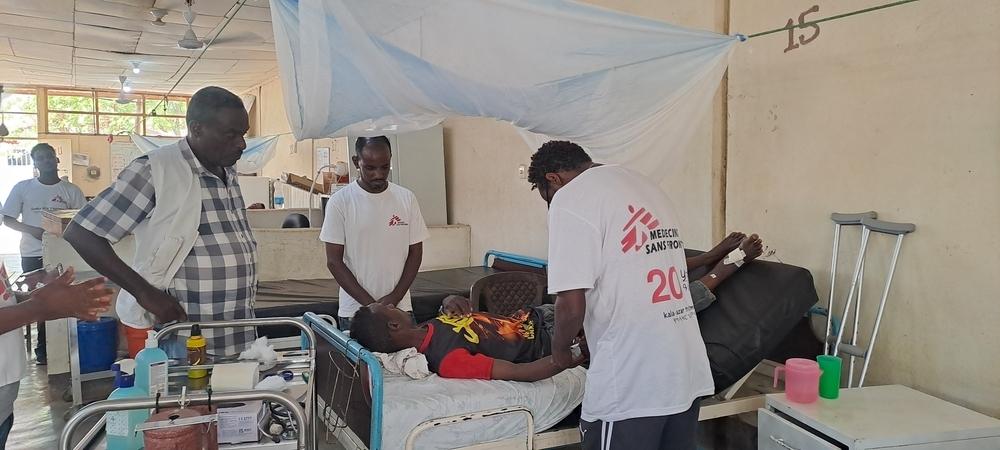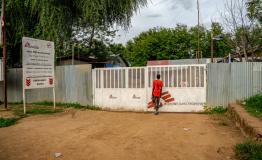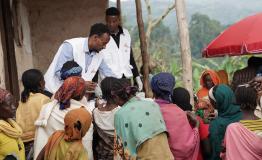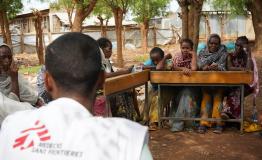Amhara Region, Ethiopia – July 8, 2025Dawit Hailu a 30-year-old farmer from a remote area near Abdurafi town in, northwest Amhara, recalls the difficulties he faced in accessing healthcare “I knew the risks of snakebites and was aware of MSF’s clinic in Abdurafi, but transportation was incredibly difficult due to the insecurity in my area. With no other option, my friends carried me on a bed for 11 kilometers”
He was bitten by a snake on the evening of May 24 2025, while he was collecting firewood around 17 kilometers from Abdurafi.
“Eventually, my brother managed to find a motorbike, and we finally arrived at the MSF clinic around midnight.”
Since mid-2023, ongoing conflict has severely affected the already fragile healthcare system in the region. Insecurity, movement restrictions and lack of affordable transportation are making it increasingly difficult for patients with life-threatening conditions like kala-azar and snakebite to access timely and adequate medical care.
MSF has been active in the Abdurafi area since 2003, providing treatment for kala-azar, snakebites, and patients co-infected with HIV, TB and other related infections. Every year from June to October, the region sees an increase in cases due to the rainy season and harvest period.
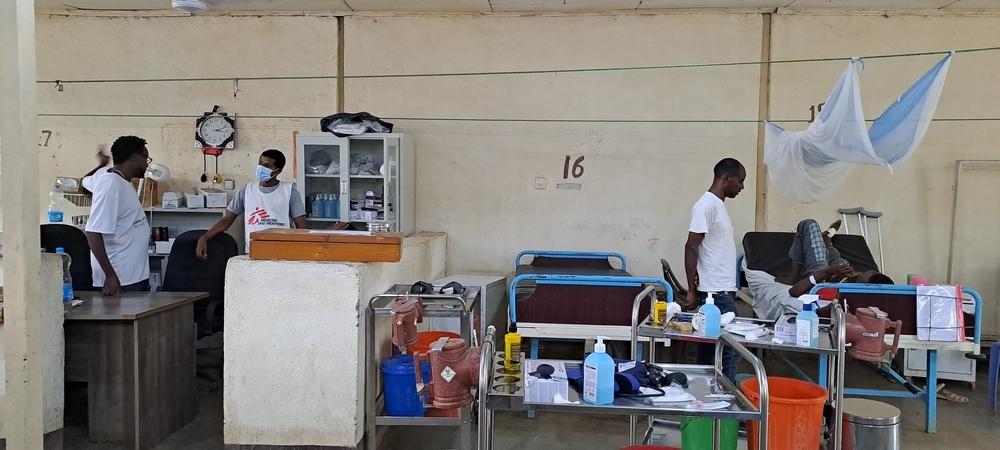
Struggling to Reach Life-Saving Treatment
Patients at MSF’s facility describe widespread insecurity, movement restrictions, and financial barriers that prevent them from reaching health facilities when it matters most.
“Transport and security challenges mean many people struggle to come to the MSF clinic. Some pay up to 5,000 birr (around USD 40) for a ride that should cost 200 birr (USD 1.45). Which makes it nearly impossible for those who can’t afford such high prices to access care” MSF project coordinator Moses CM Malual says.
Gebrehiwot and Engda Melak, both treated for snakebite still remember the fear they felt when they were bitten.
“I was really scared because someone in our village had died from a snakebite recently, I thought the same will happen to me” says Gebrehiwot.
“I felt pain, I tried to rest because there was no transportation available at night, I had no choice but to wait until morning” adds Engd
Kala-Azar patients face similar challenges
Semere Sisay, kala-azar patient from Abdurafi, shares his ongoing struggle
“I was first diagnosed in 2023 with a high fever, sweating, weight loss, and swollen spleen. I’ve been sick six times since then. MSF is the only provider of the medicine I need.
“My wife and children fled to Sudan because of the conflict, and I’ve been going through all this alone.
A Strained Health System
“More patients are arriving late with snakebites and kala-azar who should have come days earlier,” said Ana Banda, MSF’s deputy medical coordinator. “Delays in care lead to more severe complications, and in some cases, it becomes too late to help.”
Health facilities are under growing strain, facing shortages of essential medicines and disrupted supply chains. Mobile outreach services, which once played a key role in reaching remote patients with kala-azar, have been scaled back or suspended due to security concerns
“Without urgent action, preventable deaths from treatable conditions will continue to rise as the seasonal peak for both snakebite and kala-azar approaches” Banda warned.
MSF is the sole provider of treatment for kala azar and snakebite patients in the northwest part of the region. Between January and May 2025 – our teams treated 61 kala-azar patients and 363 snakebite cases in the Abdurafi center. There’s a critical need for better access to and availability of healthcare services in the region—particularly the consistent supply of anti-venoms and treatment for kala azar in health facilities.
Due to the insecurity in the area, MSF had to suspend outreach health promotion and information activities. Additionally, MSF was forced to halt life-saving ambulance referrals for highly critical patients to Gondar University Hospital, exacerbating the challenges faced by those in need of urgent care.
